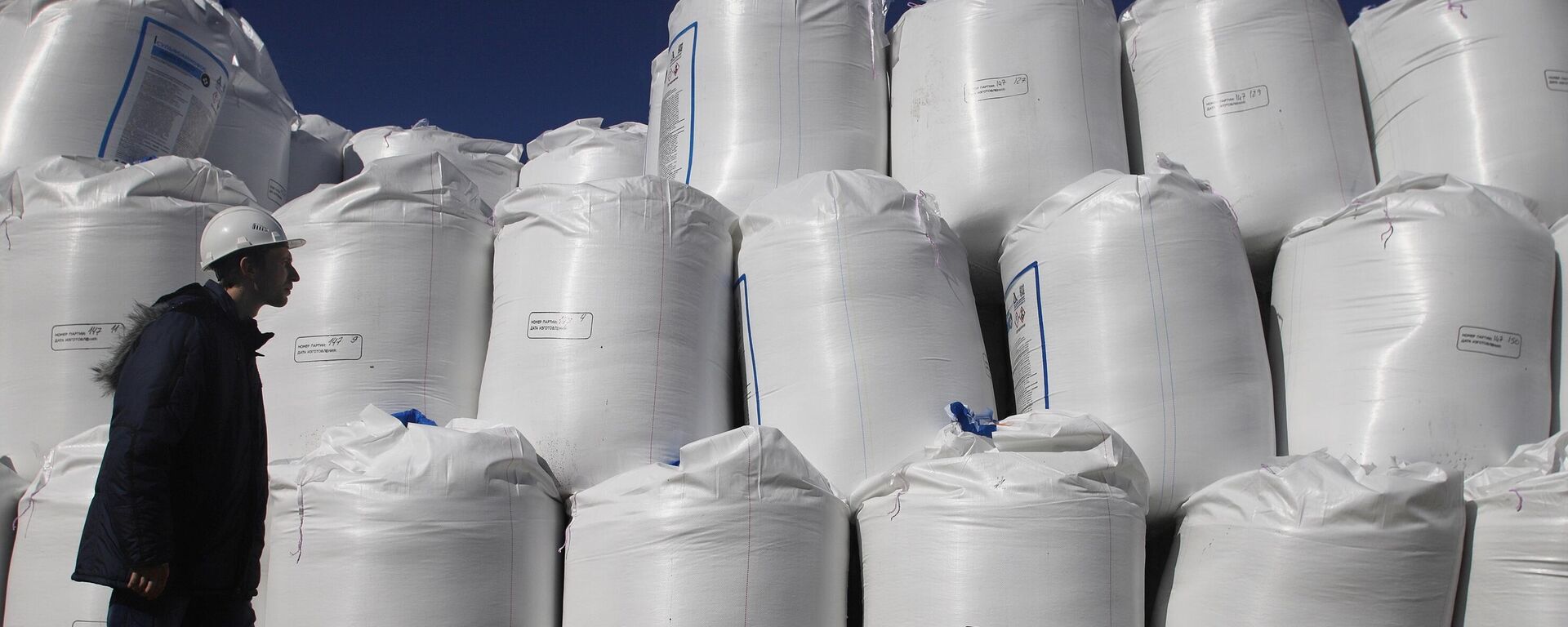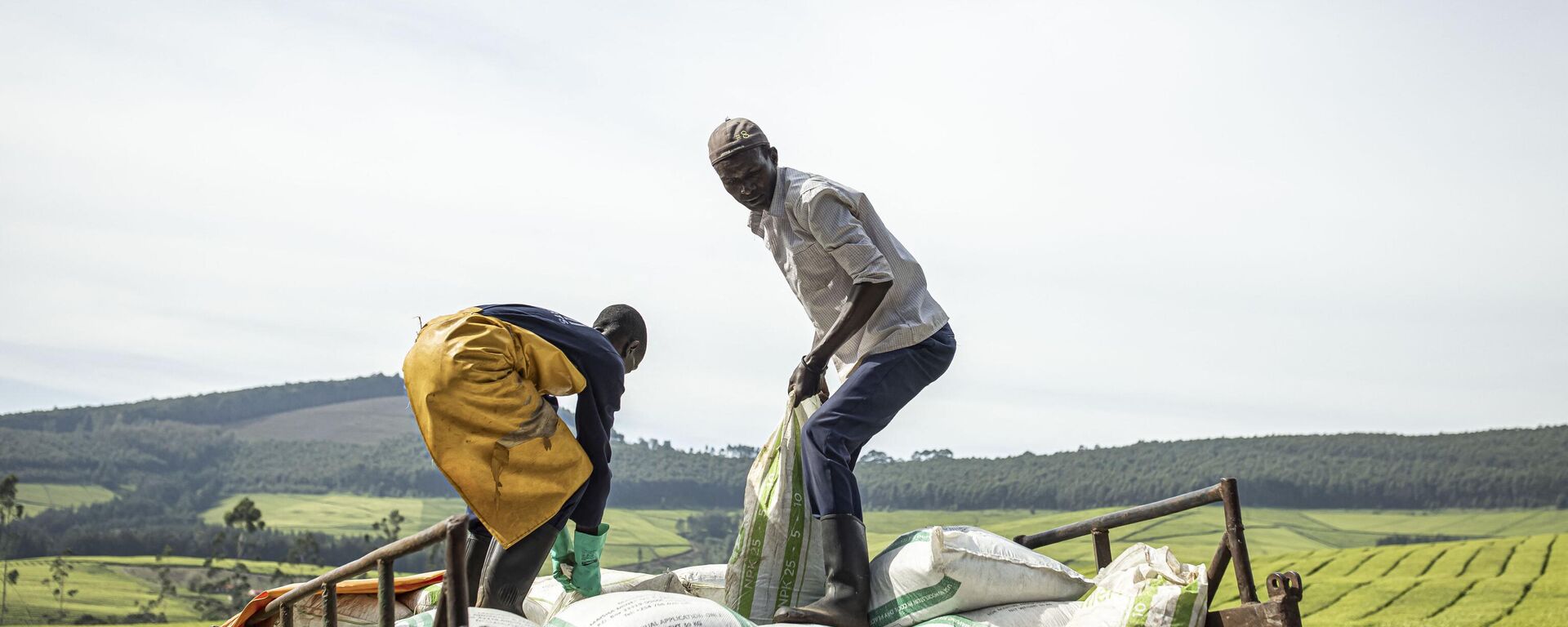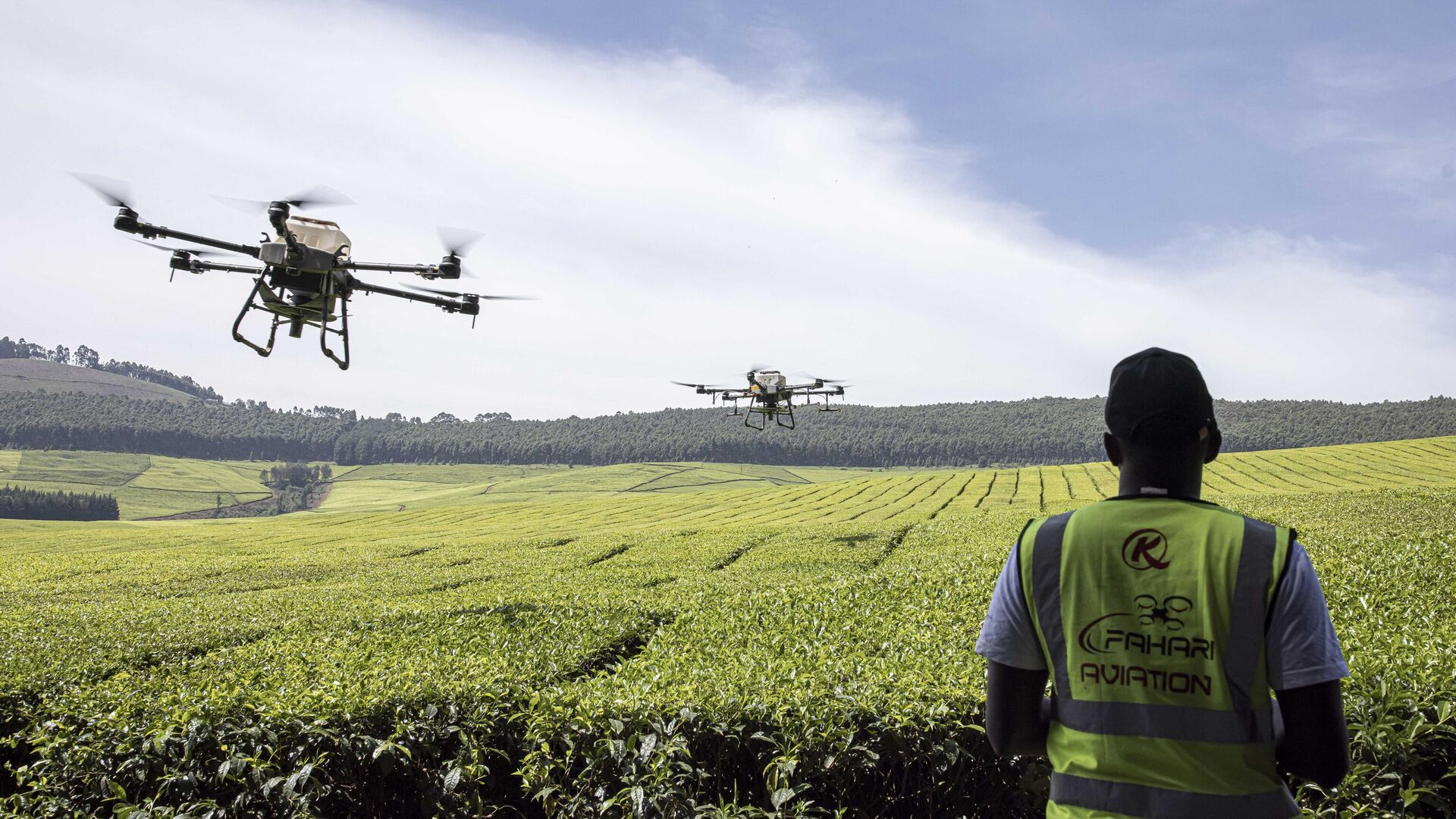https://sputnikglobe.com/20221130/west-detains-fertilizer-supplies-to-africa-on-purpose-pursuing-its-commercial-interests---expert-1104891116.html
West Detains Fertilizer Supplies to Africa on Purpose, Pursuing its Commercial Interests - Expert
West Detains Fertilizer Supplies to Africa on Purpose, Pursuing its Commercial Interests - Expert
Sputnik International
In this article you will read about West detaining fertilizer supplies to undermine Russia's authority
2022-11-30T16:56+0000
2022-11-30T16:56+0000
2023-04-12T17:04+0000
africa
russia
fertilizer
supply
aid
food crisis
special operation
grain
vladimir putin
us
https://cdn1.img.sputnikglobe.com/img/07e6/0b/1e/1104897385_0:161:3071:1888_1920x0_80_0_0_01c96e981e8a92a4cb048c560dd187a5.jpg
The West deliberately hinders fertilizer supplies under the Black Sea grain deal, trying to undermine Russia's international prestige and force African countries to buy grain from Europe and the USA, according to senior research fellow of the Center for European Studies, Institute of World Economy and International Relations of the Russian Academy of Sciences, Vladimir Olenchenko. The Kremlin has claimed that 300,000 tons of Russian fertilizer, which Russia offered to transfer to African countries free of charge, are mostly stranded in EU ports. Talking to Sputnik, Olenchenko commented on this situation, describing the West as "unreasonably aggressive." In a conversation with Sputnik, Olenchenko recalled French leader Emmanuel Macron's recent statements that a new corridor for Russian fertilizer supply to Africa is going to be established. The expert pointed out that France's actions are largely motivated by Macron's claims that "Russia is creating a competition for France." This implies that France has opened a direct confrontation with Russia over influence on the African continent, Olenchenko explained.As for solving the problem of fertilizer supplies, the analyst underlined that although the French "are doing something under pressure from the United Nations," their actions "fall under the definition of the so-called red tape." According to the expert, there are several reasons why the West opposes even free deliveries of Russian grain. In particular, western countries seem to pursue their commercial interests.As Olenchenko asserted, the majority of western powers, including the US, despite not saying it openly, would benefit from African countries being forced to buy grain from Europeans and Americans. Meanwhile, the expert reiterated that Russia is ready to provide its fertilizers free of charge. Clarifying the "free of charge" term, Olenchenko said that it can only be applied to consumer states, i.e. African nations. For Russia, the supplies it offered are not "free", although the county is ready to bear some of the costs.Europeans, for their part, seem trying to force Africa to purchase fertilizer from the West at exorbitant prices. The African countries, however, do not always have funds to pay the price, the analyst pointed out.Then, he continued, "migration flocks to Europe," benefitting the US, as Europe's competitiveness deteriorates.For many months, western nations maintained the blockade against hundreds of thousand tons of Russian-produced fertilizers, referring to sanctions, despite Russia's intention to distribute them for free to the world's poorest countries. The grain deal, which was signed on July 22 by Russia, Turkey, Ukraine, and the United Nations, implied the export of Ukrainian grain, food, and fertilizers across the Black Sea from three ports, including Odessa. The second part of this agreement implied the free export of Russian grain and fertilizer through the Black Sea to the countries in need. Still, Moscow has repeatedly stated that, despite the agreement, sanctions continue to impede the country's grain and fertilizer exports, as well as the fact that most deliveries of both Ukrainian and Russian grain were going to Europe, and not to those in need.The agreement expired on November 18, but it was automatically extended for 120 days in case none of the parties objected. The Russian Foreign Ministry stated that "no such objections were received," while also noting that the Russian side permitted a technical extension of the "Black Sea initiative" for the export of Ukrainian grain with no changes in terms and scope.Last week, Russian President Vladimir Putin reassured Russia's readiness to increase fertilizer supply to international markets and to collaborate "with absolutely all partners in this field, without exception."The president stated that many of his African counterparts had told him that they "do not understand what is happening, since it is about aid to the poorest countries."Finally, an agreement on the release of the first batch of fertilizers held in the EU was reached this month. The first shipment of 20,000 tons of fertilizer left the Netherlands for Malawi on Tuesday.
https://sputnikglobe.com/20221112/un-calls-for-speeding-up-removal-of-obstacles-to-export-of-russian-fertilizers-1104059146.html
https://sputnikglobe.com/20221130/anti-russian-sanctions-blocking-fertilizer-shipments-have-direct-impact-on-west-africa-1104886321.html
africa
russia
Sputnik International
feedback@sputniknews.com
+74956456601
MIA „Rossiya Segodnya“
2022
News
en_EN
Sputnik International
feedback@sputniknews.com
+74956456601
MIA „Rossiya Segodnya“
Sputnik International
feedback@sputniknews.com
+74956456601
MIA „Rossiya Segodnya“
fertilizer supplies to africa, grain deal, russian grain and fertilizer, food crisis in africa, west detains russia's fertilizer supply
fertilizer supplies to africa, grain deal, russian grain and fertilizer, food crisis in africa, west detains russia's fertilizer supply
West Detains Fertilizer Supplies to Africa on Purpose, Pursuing its Commercial Interests - Expert
16:56 GMT 30.11.2022 (Updated: 17:04 GMT 12.04.2023) Russia, Ukraine, and Turkey signed an UN-brokered agreement in July to secure a humanitarian corridor through the Black Sea to allow food and fertilizer exports. However, Moscow repeatedly denounces that sanctions continue to impede its grain and fertilizer supplies to the most vulnerable nations.
The West deliberately hinders fertilizer supplies under the Black Sea grain deal, trying to undermine Russia's international prestige and force African countries to buy grain from Europe and the USA, according to senior research fellow of the Center for European Studies, Institute of World Economy and International Relations of the Russian Academy of Sciences, Vladimir Olenchenko.
The Kremlin has claimed that 300,000 tons of Russian fertilizer, which Russia offered to transfer to African countries free of charge,
are mostly stranded in EU ports. Talking to
Sputnik, Olenchenko commented on this situation, describing the West as "unreasonably aggressive."
"[Russian fertilizers] contribute significantly to food security, especially of those countries where food is scarce, particularly in Africa, Asia, and Latin America," he explained.
In a conversation with Sputnik, Olenchenko recalled French leader Emmanuel Macron's recent statements that a new corridor for Russian fertilizer supply to Africa is going to be established. The expert pointed out that France's actions are largely motivated by Macron's claims that "Russia is creating a competition for France." This implies that France has opened a direct confrontation with Russia over influence on the African continent, Olenchenko explained.
As for solving the problem of fertilizer supplies, the analyst underlined that although the French "are doing something under pressure from the United Nations," their actions "fall under the definition of the so-called red tape."
"At the same time, there is some kind of propaganda component on [the French] part. Surely, they are trying to undermine the authority of Russia, claiming that the lack of fertilizer supply is the responsibility of Russia, not France," Olenchenko stated.
According to the expert, there are several reasons why the West opposes even free deliveries of Russian grain. In particular, western countries seem to pursue their commercial interests.

12 November 2022, 12:02 GMT
As Olenchenko asserted, the majority of western powers, including the US, despite not saying it openly, would benefit from African countries being forced to buy grain from Europeans and Americans.
"In other words, they [western countries] want only them to be present on the foreign market for grain and other food products. And, most importantly, they are eager to impose a noticeably exorbitant price," he elaborated.
Meanwhile, the expert reiterated that Russia is ready to provide its fertilizers free of charge. Clarifying the "free of charge" term, Olenchenko said that it can only be applied to consumer states, i.e. African nations. For Russia, the supplies it offered are not "free", although the county is ready to bear some of the costs.
"We [Russia] are doing this on purpose, so that a certain number of countries would not face severe food shortages," he emphasized.
Europeans, for their part, seem trying to force Africa to purchase fertilizer from the West at exorbitant prices. The African countries, however, do not always have funds to pay the price, the analyst pointed out.
"If they [African nations] can't afford fertilizers from the foreign market, food shortages happen in their countries, causing unrest, protest sentiments, and all of these factors generate migration," Olenchenko explained.
Then, he continued, "migration flocks to Europe," benefitting the US, as Europe's competitiveness deteriorates.
"Here we can see multifaceted actions. And the US appears to be the primary beneficiary," he concluded.
For many months, western nations maintained the blockade against hundreds of thousand tons of Russian-produced fertilizers, referring to sanctions, despite Russia's intention to distribute them for free to the world's poorest countries.
The grain deal, which was signed on July 22 by Russia, Turkey, Ukraine, and the United Nations, implied the export of Ukrainian grain, food, and fertilizers across the Black Sea from three ports, including Odessa. The second part of this agreement implied the free export of Russian grain and fertilizer through the Black Sea to the countries in need. Still, Moscow has repeatedly stated that, despite the agreement, sanctions continue to impede the country's grain and fertilizer exports, as well as the fact that most deliveries of both Ukrainian and Russian grain were going to Europe, and not to those in need.
The agreement expired on November 18, but it was automatically extended for 120 days in case none of the parties objected. The Russian Foreign Ministry stated that "no such objections were received," while also noting that the Russian side permitted a technical extension of the "Black Sea initiative" for the export of Ukrainian grain with no changes in terms and scope.
Last week, Russian President Vladimir Putin reassured Russia's readiness to increase fertilizer supply to international markets and to collaborate "with absolutely all partners in this field, without exception." 
30 November 2022, 12:14 GMT
The president stated that many of his African counterparts had told him that they "do not understand what is happening, since it is about aid to the poorest countries."
Finally, an agreement on the release of the first batch of fertilizers
held in the EU was reached this month. The first shipment of 20,000 tons of fertilizer left the Netherlands for Malawi on Tuesday.




